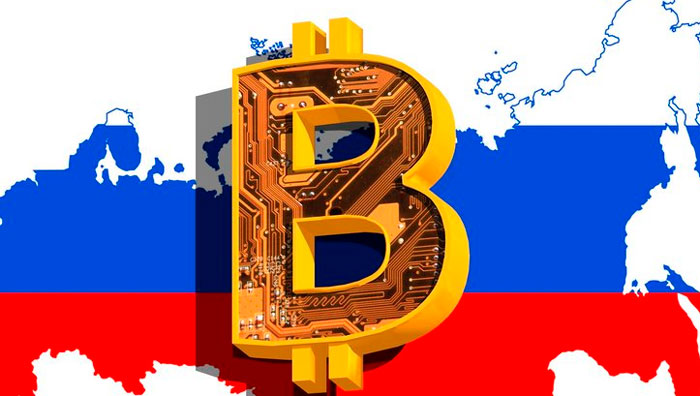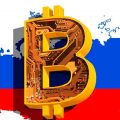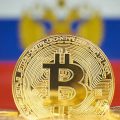
Despite the fact that cryptocurrencies became truly widely known only in 2017, many statestried to regulate it long before that. In Russia, these attempts have been made for many years, and some progress has been made.
Alas, we still talk about full regulationIt’s too early, but the available information is enough to answer the main questions: what is the current status of cryptocurrencies, is it possible to work with them according to the law, and how does this law apply to the blockchain industry as a whole?
We invite you to take a look at a selection of alllegislative, judicial and legal initiatives, which was prepared by an IT lawyer under the nickname Menaskop on the habr portal. It contains all the main regulatory (regulatory) acts, initiatives/projects, information about judicial practice, as well as positive and negative results.
year 2014
The regulatory framework of the first period:
- Information letter (!) of the Central Bank of the Russian Federation, or more precisely - its press service, dated January 27, 2014 “On use when making transactions...”. The letter does not (!) have legal force. For more detailed analysis, see Habré
- After a meeting at the RF GP on 06.02.On 14, an information message was also published from Rosfinmonitoring “On the use of cryptocurrencies” with a message similar to the letter from the Central Bank. More details about the bans can be found in the analytical report.
Initiatives:
- In the General Prosecutor's Office (06.02.14) a meeting of the FSB, the Ministry of Internal Affairs, the prosecutor’s office and other law enforcement agencies was held, at which, in particular, issues of “the legality of using anonymous payment systems and cryptocurrencies” were discussed, although the concept of a payment system at that time was recorded in Federal Law No. 161 and there was clearly no discussion about him. The main aspect of discrediting was clear: as D. Assange correctly noted, these are always the 4 horsemen of the Apocalypse.
- The first, punitive, draft law (dated 03.10.14) is currently not available for direct viewing: only in the web archive. And not in vain: this document contained a lot of inconsistencies and absurdities, indicating not only terrible legal technique, but also the complete incompetence of the persons who composed it. Perhaps the most critical point is the introduction of penalties for “extracting money surrogates.” Despite the fact that the very concept of the latter and its content have not been worked out. For a more detailed analysis of the bill, see the article.
- No wonder already in December 2014The Ministry of Economic Development criticized this project as untenable: primarily because the definition of money surrogates included loyalty programs, as well as a number of other legal phenomena, which clearly disrupted the work of all (!) private businesses in the Russian Federation.
Judicial and other practice:
- Blocking an online store.
- The two most famous (at that time) blockages by Roskomnadzor.
- Actually the decision of the Nevyansk City CourtSverdlovsk region (attention, access to Slideshare is also limited without a VPN!) dated 09/30/14 about blocking 7 Internet resources dedicated to the Bitcoin cryptocurrency: bitcoin.org, indacoin.com, coinspot.ru, hasbitcoin.ru, bitcoinconf.ru, bitcoin .it, btcsec.com. Detailed case analysis. Interestingly, coinspot was blocked again in 2019 after being unblocked in 2015.
2015 year
Initiatives:
- Bill to ban cryptocurrency in the territoryRF under threat of administrative and/or criminal punishment. As usual, the original is not available (and even access to expert comments is blocked). And this despite the general message - “cryptoassets are allowed.”
- You can find out more about opinions on the development of taboo laws on Habré.
- A working group has been created under the Central Bank of the Russian Federation to develop draft laws in this area (in my opinion, the most ineffective of all).
Arbitrage practice:
- Blocking btc-e.
- Blocking several sites at once.
- Cancellation of the decision on blocking in 2014 (see also the analysis on Habré).
- Decision 2-10750/15 dated November 10, 2015 - a short list of it: see the summary material.
- Materials of cases on blockings in 2015.
- Cancellation of decisions on blocking of “cryptocurrency sites” in the regional court (Ekaterinburg).
- And, of course, a show trial at Kolionovo (with constant continuation).
2016 year
Normative acts:
- Letter from the Federal Tax Service of the Russian Federation dated 03.10.16, the main conclusions from which: the concepts of “money surrogate” and “cryptocurrency” are not in the legislation; citizens are not prohibited from using crypto-assets and there are no grounds for taxation of such transactions. All definitions are characterized by an extreme degree of abstraction. Commentary on the importance of this document from members of the Big Four.
Initiatives:
- Promise from 2016 that the draft cryptocurrency law “will be available before the fall”: see here. However, the heated debate delayed it (and greatly).
- The Ministry of Finance, as always, decided to tighten measures andmade an attempt to introduce penalties of up to 7 years(!) of imprisonment “for issuing money surrogates.” For comparison: art. 264 of the Criminal Code of the Russian Federation provides for a much more lenient punishment, although no one has died from cryptocurrencies yet, but the death toll on the roads is tens of thousands of people.
- Bitcoin == foreign currency?Another very strange initiative of the Ministry of Finance, which not only contradicts the logic set out in the letter of the Federal Tax Service above, but also the very essence of cryptocurrency, which even the SEC spoke about in a more correct direction.
Arbitrage practice:
- Vyborgsky District Court of St. Petersburg dated July 18, 2016 (case No. 2-10119/2016). Analysis on Habré.
- The Vyborg District Court of St. Petersburg banned (as it later turned out - without reason) websites related to cryptocurrency.
- The Primorsky District Court of St. Petersburg, by decision in case No. 2-10224/16 dated July 5, 2016, blocked Localbitcoins.
- The decision in case No. 2-10730/2016 blocked the exmo.com exchange
- Verdict of the Leninsky District Court of Chelyabinsk dated June 6, 2016, case No. 1-311/2016
- Primorsky District Court. St. Petersburg. Decision No. 2-10936 / 2016 of 06.16.2016.
- Determination of the Tyumen Arbitration Courtregion dated June 22, 2016 in case NoA70-15360/2015: taking loans through cryptocurrency is (!?) dishonest behavior (as usual, the original source is not available: the main part of the decision can be read at the link).
- Decision of the Ryazhsky District Court of Ryazanregion No2-160/2017 2-160/2017~M-129/2017 M-129/2017 in the case of the exchange of “virtual currency”. The main conclusion: “practically in the Russian Federation there is no legal framework for regulating payments made in “virtual currency”, in particular Bitcoin, and there is also no legal regulation of online trading platforms, bitcoin exchanges, all transactions with transfers of bitcoins are made by their owners at their own peril and risk.”
- An analysis of solutions with the opposite position can be found in this material.
- The determination of the Arbitration Court of the Vologda Region of October 6, 2016
in case NoA13-3814/2016. - Resolution in the case No. A73-6112 / 2015 of 06/28/2016. 6th AAS, where it was stated: “the reasons for the return by agreement of the money received by him under the loan agreement
funds, but not in the form of $5 million received in cash, but in the form
cryptocurrencies (virtual money) are assessed critically, since they do not confirm the fact of payment of funds to the defendant” (see also case No. A73-6112/2015). - Intellectual rights court decision No. SIP -368/2016 dated 09/07/2016: refusal to register the “Bitcoin” trademark.
- Decision of the Anapa City Court on blocking the criptonit website No. 2-869/2016 2-869/2016~M-391/2016 M-391/2016 dated February 25, 2016 in case No. 2-869/2016.
- Analysis of blocking on Habré.
2017 year
Normative base:
- Central Bank of the Russian Federation 04.09.17, just before the height of the ICO hype, released another “information letter”, which just talked about the Initial Coin Offering and how all this could lead to “financial losses for citizens and the impossibility of protecting consumer rights.” But the Central Bank kept silent about the fact that Cashbury, the largest pyramid since the time of MMM, had licenses from this regulator, just as millions of fly-by-night companies have and had accounts in banks controlled by the Central Bank of the Russian Federation.
- Letter of the Ministry of Finance of the Russian Federation dated October 2, 2017 No. 03-11-11/63996 on the general legal status of cryptoassets.
- Letter of the Ministry of Finance of the Russian Federation dated October 13, 2017 No. 03-04-05/66994 on the payment of taxes on cryptocurrencies (and comments to it).
Initiative:
- It all started with the List of Instructions from the President of the Russian Federation on October 21, 2017.
- Another initiative of the head of the Ministry of Finance that has never taken place.
- In June of the same year, the following statement was made by the same Mr. Moiseev: now they wanted to recognize cryptocurrencies as “other property.”
- The Central Bank also decided to regulate the ICO area (see above).
Arbitrage practice:
- The case is about the site bitcoininfo.ru.
- A number of cases in perspective and retrospective from Roskomsvoboda.
- Verdict of the Abakan City Court of the RepublicKhakassia dated May 10, 2017 in case No. 1-254/2017 (here and up to the point “Vologda’s Verdict” the list was compiled based on materials from a scientific article: it was not possible to verify all cases).
- Sentence of the Yoshkar-Ola City Court of the Mari El Republic of June 01, 2017 (case No. 1-233 / 2017).
- Sentence of the Soviet District Court of Omsk of May 19, 2017 (case No. 1-232 / 2017).
- Sentence of the Vologda City Court of the Vologda Region of May 15, 2017 (case No. 1-461 / 2017).
- The Krasnoyarsk prosecutor's office and the ban on sales on au.ru.
- The Prosecutor's Office of Novosibirsk and the ban on sales for cryptocurrency with reference to Federal Law No. 115.
- Verdict No. 1-143/2017 of December 26, 2017 in case No. 1-143/2017 Dubna City Court.
- Verdict No. 1-191/2017 of April 21, 2017 in case No. 1-191/2017 Leninsky
District Court of Tomsk. - Sentence of the Kuibyshevsky District Court of Samara on January 24, 2018 in the case No. 1-27 / 2018 (1-300 / 2017).
- However, practice in criminal andadministrative proceedings are extensive only because in the endless stream of ordinary fraudulent actions, cryptocurrency fraud is highlighted by the media, but their content in the total volume, as will be discussed in the next article, does not amount to even 1%.
- The Oktyabrsky District Court of Saransk, Republic of Mordovia, decision in case No. 1-301/2017 dated 12/08/17 is one of the indicative ones in this sense.
- And, of course, the LavkaLavka case, which, by the way, won in it, which did not help the business.
2018 year
Normative acts:
- Letter of the Department of Tax and Customs Policy of the Ministry of Finance of the Russian Federation dated August 28, 2018 No. 03-03-06/1/61152.
- Letter of the Department of Tax and Customs Policy of the Ministry of Finance of the Russian Federation dated August 16, 2018 No. 03-03-06/1/58171.
- Similar findings are contained in the Letter dated 14.06.2018 No. 03-03-06 / 1/40729.
- And also in the Letter dated 02/09/2018 No. 03-03-06 / 1/8061.
- And the Letter dated 05/17/2018 No. 03-04-07 / 33234.
- Letter of the Ministry of Finance of the Russian Federation No. 03-03-06/1/8061 with comments from Deloitte.
- Letter dated 05.17.18 of the Ministry of Finance of the Russian Federation No. 03-04-07 / 33234
- FATF recommendations for the implementation of Rosfinmonitoring.
- Ministry of Economic Communications and opinion on ICO
- A complete analysis of all letters from the Ministry of Finance on cryptocurrencies.
Initiatives:
- By 25.01.18, the well-known project “On Digital Financial Assets” (hereinafter referred to as the Federal Law on Digital Financial Assets) appeared, which went through several editions (a brief but emotional analysis of the first and its addition): initially, DFA was understood as a cryptocurrency and a token, which differed only in the issuer. Perhaps the most important drawback of the project was the provisions on how tokens need to be issued on the territory of the Russian Federation: for this, permissions (licenses) must be obtained, as well as the use of several intermediary platforms, that is, the whole point of ICO/tokenization as such has disappeared. Perhaps the only advantages of the original edition were the separation (as proposed) of home mining and industrial mining (in terms of power consumption: up to 15 kW and after) and the introduction of the term “smart contract” (see also).
- Draft Federal Law from the Central Bank of the Russian Federation “On alternative methods...”Today it has been removed from the site and is available only in the form of a cache copy or on another official resource: but in full form (date - 01/28/18). In the same law, the Achilles heel is not only restrictions on issuers, but also on the entry amount for an investor: up to 50,000 rubles. to private individuals (in 2019 - possible increase to 100,000). “It couldn’t be simpler than this,” is perhaps the best description of what is happening. You can also study the official review of the Russian Government on this project.
- A bill was also introduced based on the parliamentary initiative: “On the system of distributed national mining.” An assessment of this and two previous projects can also be found on the Roskomsvoboda website.
- The first reading of all three laws took place (and was successful) in May 2018. Explanation by A. Aksakov. Although the dispute between the ministries did not subside.
- The next time there was a statement that“the law is about to be adopted” - it was just the 5th month of 2018. The Ministry of Finance did not stop at this point and proposed to (re)introduce criminal liability for exchange, but the Ministry of Economic Development this time refused to make amendments.
- The main blow was directed at the most understandable(for officials) in the field of mining: despite the difficulties with the category itself, even RAKIB decided to certify this area (however, RAKIB had many plans for ICO). However, this did not make the legal technique of the document any better, and it was decided not to provide “any tax benefits” to the miners themselves.
- Meanwhile, the Central Bank of the Russian Federation conducted a test ICO, which,however, it is impossible to call this from a global position (including due to restrictions on the funds raised and certification), and at the same time he recalled that “cryptocurrencies are not a legal means of payment on the territory of the Russian Federation.” Sberbank - too; and the head of the Ministry of Finance reported on the positive aspect of this type of crowdfunding.
- In May 2018, another project was proposed: “On the circulation of digital rights in the financial sector and on amendments to certain legislative acts of the Russian Federation.”
- However, already in June the bills were postponed again: this time until the fall of 2018. One version of why this happened was expressed by different experts at different levels.
- In the fall, the Russian Union of Industrialists and Entrepreneurs asked to finalize the “draft bill on cryptocurrencies.”
- In total, by the end of 2018, there were up to 9 projects (!), which, however, did not cover even 2/3 of the blockchain/cryptocurrency industry.
Arbitrage practice:
- The Zavod.Coin case and its continuation.
- The most important thing is the Decision of the Supreme Court of the Russian Federation dated April 20.18 (official link): as a result of its adoption, one of the most famous (and unfair) cases regarding sites working in one form or another with cryptocurrencies was canceled: during this process, a response was given from RACIB to a lawyer’s request regarding the status of cryptocurrencies. At the same time, the original decision of the Vyborg District Court is currently not available on the website. This judicial act should be recognized as one of the most significant in the industry today, despite the fact that “the court avoided the issue of determining the legal status of cryptocurrencies and considered only procedural violations.” A brief chronology can also be studied on the TASS website.
- Decision of the Kuibyshevsky District Court dated July 24.18: about blocking bestchange.ru, fastobmen.net, pushpayer.com, xchange.cash. The court stated in the reasoning that: “electronic currency” Bitcoin (bitcoin) is a virtual means of payment and storage (a text sequence consisting of letters of the Latin alphabet and numbers)», although according to Federal Law No. 161 “On the national payment system” electronic money is recognized as a completely different category (see paragraph 18 of Article 3 of this law), the Central Bank of the Russian Federation itself in 2014 used the term “virtual currencies”, and in 2017 clarified them with the word “cryptocurrencies”. Later, this decision, which recognized the information of these sites as “prohibited for distribution on the territory of the Russian Federation”, and the sites included in the “Unified Register of Domain Names...” was canceled (see also). The appeal was handled by a well-known Khabrov resident - Sardarbinyan, more about this in his material.
- The case of the Kostroma court, which allegedly made a decision on a crypto exchanger, stands apart, but in fact, everything came down to completely banal operations for laundering the most ordinary, fiat funds.
- Appeal ruling of the Moscow City Court of March 26, 2018 in case No. 33a-2103/2018.
- Decision of the Moscow City Court of April 18, 2018 No. 7-4313 / 2018
- Perhaps another, most important, decision isThe Ninth Arbitration Court of Appeal in Resolution No. 09AP-16416/2018 dated May 15, 2018 in case No. A40-124668/2017, where for the first time the debtor was obliged to transfer crypto-assets: “to oblige... to transfer to the financial manager access to the crypto-wallet (to transfer the password) to replenish the bankruptcy estate” .
- Appeal ruling of the Ulyanovsk Regional Court of July 31, 2018 in case No. 33-3142 / 2018.
- Appeal ruling of the Supreme Court of the Udmurt Republic dated December 26, 2018 in case No. 33-5664/18 regarding mining not for “domestic (own) needs”
- Decision of the Oktyabrsky District Court of Novosibirsk dated December 24, 2018 in case No. 2-4803/2018 - also on mining issues.
- Appeal ruling of the St. Petersburg City Court dated September 17, 2018 in case No. 2-1781/2018 on why “home” mining is possible.
- The decision of the Arbitration Court of the Irkutsk Region of 05.2018 in the case No. A19-15918 / 2017 (mining).
2019 year
Normative acts:
- The main achievement is the entry into force of the Federal Law “Ondigital rights" (comment on Habré): in fact, these are tiny amendments to the articles of the Civil Code of the Russian Federation, which we will definitely consider in the following material: first of all, 141.1 of the Civil Code of the Russian Federation.
- You can read more about positions regarding innovations in the summary material from RBC: especially since all the main gaps are discussed in it.
- Despite the obvious lag of the Russianlegislation from international practice, especially from the evolution of crypto-assets themselves, the Ministry of Finance on September 26, 2019 issued another Letter on exactly how to pay taxes on these assets.
Initiatives:
- Perhaps Russia, as a member of BRICS, will introduce a single state (!?) cryptocurrency (or even its own: in one form or another).
- The Ministry of Internal Affairs again made a statement (this time not through the Ministry of Finance, but directly) that it would develop a mechanism for searching and seizing crypto assets.
- Perhaps the two previous paragraphs (as well as the general uncertainty for more than 5 (!) Years) forced Sberbank to abandon the creation of its own cryptocurrency.
- Perhaps by the end of this year or the beginning of next year (as we see from the materials in this article, this is quite realistic :)) amendments will appear that will allow trading on “certified” crypto exchanges.
- A number of regions, meanwhile, are trying to take advantage of legal gaps and test blockchain, and with it a number of other innovations.
- Cryptocurrencies themselves once again (!) decided to declare them illegal, but to create everything for the operation of “cryptocurrencies on closed blockchains” (!?), because cryptoassets “threaten the financial stability of the Russian Federation.”
- Perhaps new categories will appear soon:utilitarian digital law (Article 8 of the Federal Law of the Russian Federation dated August 2, 2019 N 259-FZ “On attracting investments using investment platforms and on introducing amendments to certain legislative acts of the Russian Federation”); digital financial asset; digital certificate (Article 9 of Federal Law No. 259); a digital operational sign, and, if you’re lucky, then a cryptocurrency (in some other, rather, form in writing and content) and even tokens of all stripes.
Judicial and other practice:
- For the first time, the tax authority agreed (conditionally) to the inclusion of cryptocurrency in the charter: comments.
- The Supreme Court followed the general practice of Russian government agencies and warned that money laundering through cryptocurrencies is punishable by law.
To summarize: what will happen next?
- The most important conclusion for me is that businessawaiting regulation, can be either large or flexible: 5 years have passed since the 1st initiative, and there are not even 5 full sheets of innovations. The root cause of this is simple: government agencies listen to lawyers who have a very indirect relationship with the industry, and all “expert councils” and “working groups” work either in a formal manner or by lobbying the initiatives of the structures themselves.
- Despite constant promises of digitalization and the “need to regulate” cryptocurrency, sites are still blocked.
- It can be designated as follows:firstly, the market does not believe the government’s promises, because it constantly breaks them; secondly, the power itself is heterogeneous: what is beneficial to the Ministry of Economic Development is not beneficial (for some reason) to the Ministry of Finance (it happens the other way around); what the Ministry of Finance itself lobbies is not accepted by the Central Bank; The State Duma of the Russian Federation must create its own expert council, because otherwise you have to listen to consultants from the Central Bank and other banks, the same Ministry of Finance (see their selection of materials), etc. And not state players, in fact, they were created from its own depths. This is also discussed in the analysis of the situation in 2019-2020.
- Although the issue of taxes has been raised more than once,Today, there is no clear and, even more so, unified scheme, but there are again contradictions: transactions are considered suspicious (because in the Russian Federation, information letters from Rosfinmonitoring and the Central Bank are sometimes above the law), and it is impossible to pay taxes without making transactions.
- As will be shown in the 2nd and 3rd articles of the series, another hindrance is the one-sided presentation of data, which essentially distorts market statistics and presents them to the average person in an absolutely black, negative light.
- The result of such a “war of all against all”Russia not only lost its leading position in ICOs, but also failed to attract new funds to the budget, including through taxes (examples here). Among other things, most of the unsuccessful government initiatives. authorities are quietly but methodically trying to erase it, thereby avoiding the proper public resonance: for me, this is the best proof that for blockchain, which allows you to accurately find out information once recorded, this is precisely the best approbation.
Thus, it is not decided for todaythe issue of mining, smart contracts and DAO, there is no clear definition of blockchain and DTL, there is no legislative regulation of cryptocurrencies, as well as tokens in the broad sense (ICO, IEO - especially: see Roman_Yankovskiy for today’s diagram); The status of DEX exchanges is unclear and most importantly, there are no trends towards improving the situation.
Those norms that are accepted are logical.the continuation of Federal Law No. 161, that is, they create an artificial domestic market for non-competitive products: this will ultimately lead to the fact that the Russian Federation will be isolated from the common crypto-asset market and will create all conditions for the degradation of its own. To do this, it is enough to study the experience of Qiwi, WebMoney, RBC.money, as well as small aggregators (Telemoney, Z-Payment and others) after the adoption of the Federal Law "On National ...". However, you are free to disagree with me.
Anyway, in the following parts we will tryto tell you how things are today, where the world is moving, and most importantly - how to still work in the existing conditions, without looking at statistics, statements and the general crisis state of business in the Russian Federation.
</p> 5
/
5
(
1
vote
)





